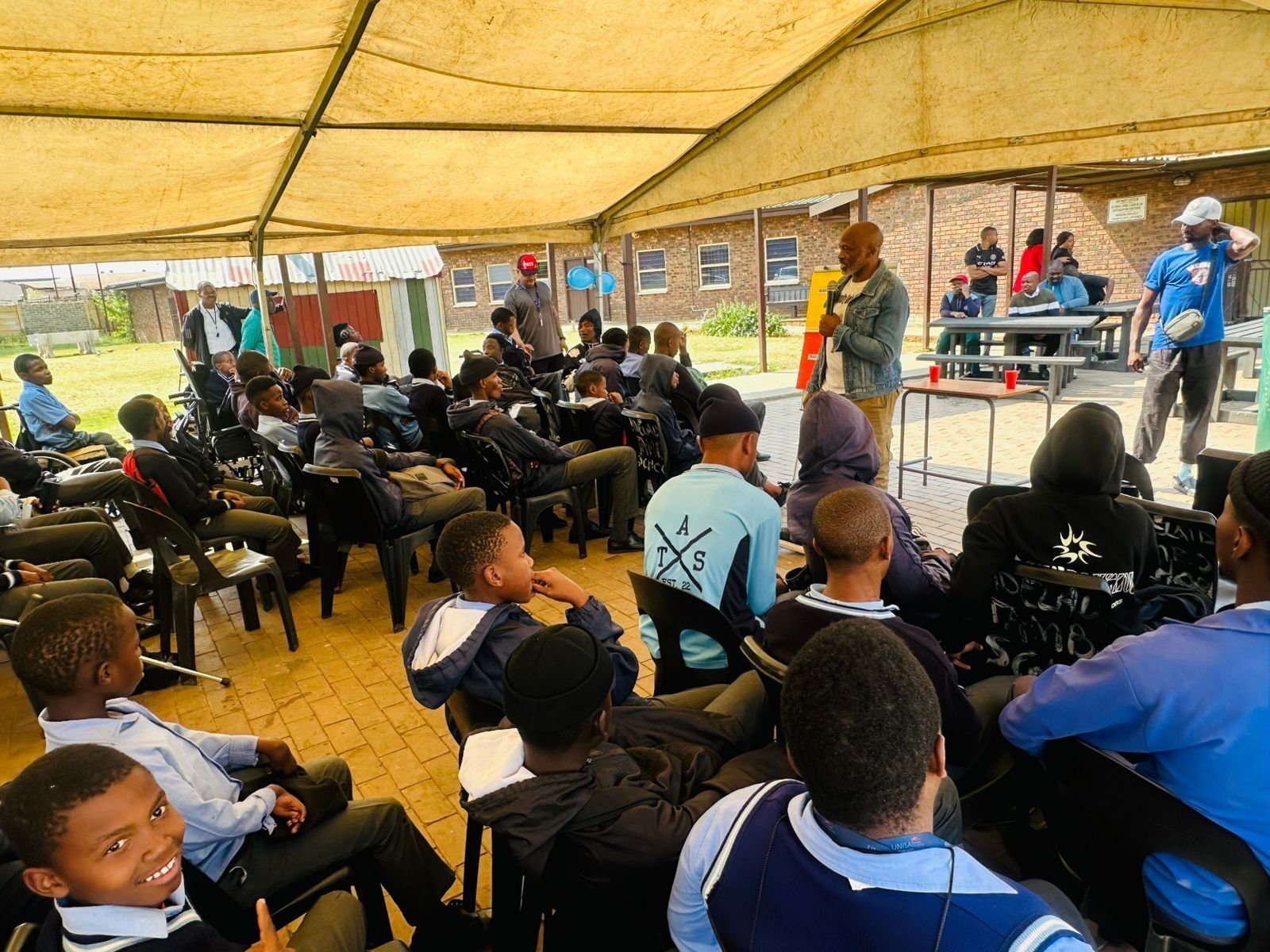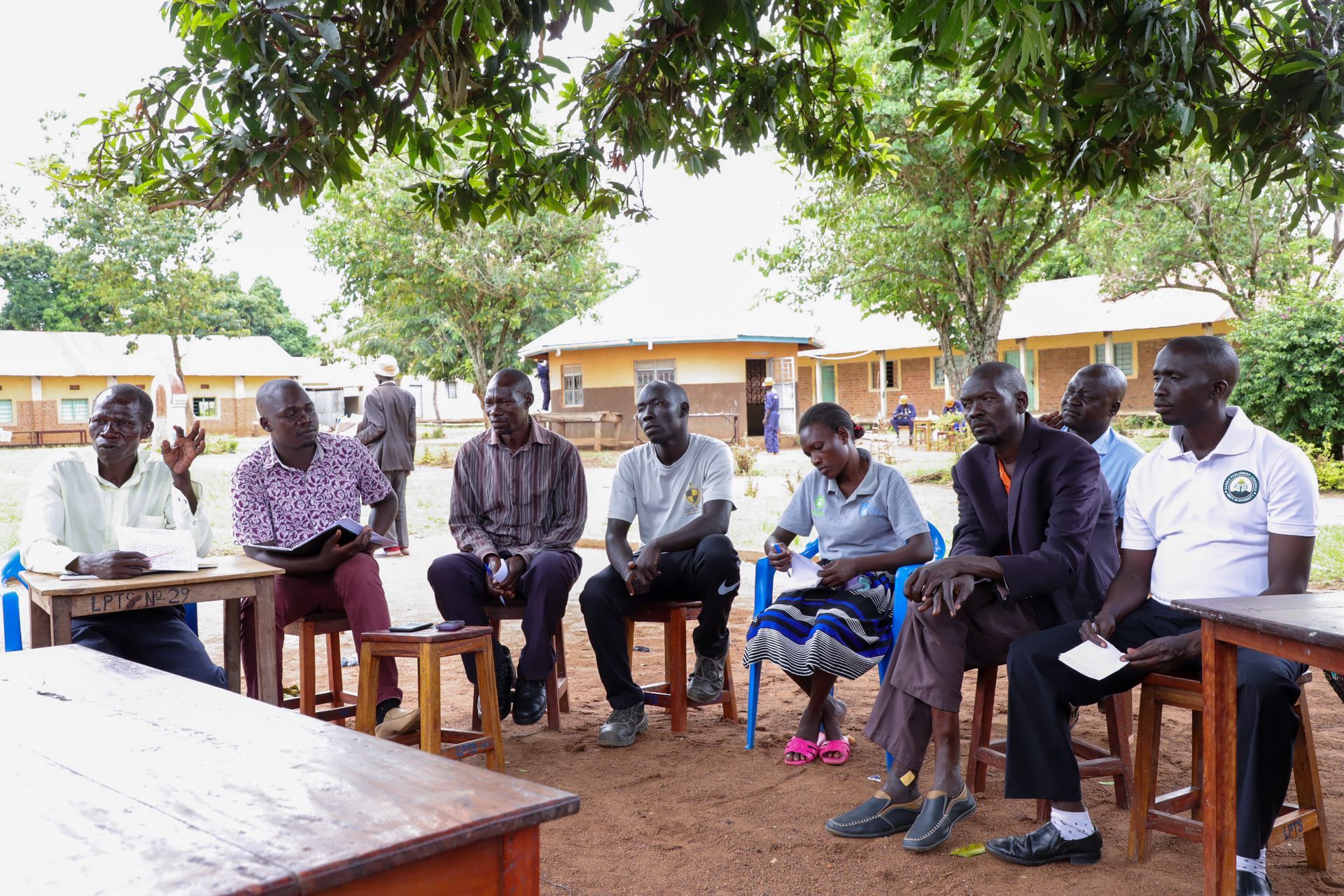Interview with the Steve Sinnott Young Ambassadors in The Gambia
We interviewed two of our young ambassadors in The Gambia about their experience of working with The Steve Sinnott Foundation and Send My Friend To School as campaigners for Education For All.
Both Fatoumatta Jabbi and Therese P. Mendy have worked to promote Education For All with Send My Friend to School and The Steve Sinnott Foundation, campaigning to help women and children in their communities understand the importance of education and enrol at school.

SSF - What did you learn from your time as an SSF young ambassador?
Fatoumatta - As a young ambassador, I have learned that children especially girls faced big hurdles such as cultural intolerance, remote locations, violent conflict, and poverty which are factors that prevent girls from receiving the basic human rights of education.
Therese - I have learned a lot during my time as SSF young ambassador. I have learned to appreciate people with different backgrounds and understand that due to certain circumstances surrounding them can affect their ways of living.
SSF – Did you enjoy being an SSF Ambassador, was it hard or easy?
Fatoumatta - I have really enjoyed speaking for the voiceless children which had always been my passion but the journey wasn't quite easy as it went through some rigorous processes. Campaigning is not an easy task and it comes with a big responsibility.
Therese – Yes I enjoyed. It was not so hard nor easy, for it required a great responsibility to carry out. It was indeed a privilege and honour to be a young ambassador of SSF.
SSF – What did you learn from EFA with Send My Friend to School?
Fatoumatta - First of all, it was a delight seeing you all and working together to ensure that our voices are heard. Your efforts and kind gestures towards these children we advocate for, have encouraged me to do more in my community.
I have learned that we can only achieve goals when we all come together in unity and motivate each other. Also with our diverse culture, we were able to send messages to the world. Meeting with campaigners in the UK was indeed a beautiful moment. The schools and places we went to visit, really opened my eyes to see the world differently from the perspective I had before our visit to the UK.
Also, I learned about the different ways of campaigning in the UK from our fellow campaigners. Their educational system and how children are guided in the UK. Attending the Conservative Party conference and getting to meet some MPs and an opportune moment to talk to them about our campaign.
SSF – What were the benefits of your trip to the UK?
Fatoumatta - It was indeed a great honour and privilege to be given the opportunity to travel to the UK, it has boosted my confidence and made me a better version of myself. It makes me realize that my voice can be heard and make a change not only in The Gambia but the world at large.
Secondly, it makes me know the outside world. I have learned so many things in the UK including their government system, cultures, and a lot more. It was like a dream come true getting to meet young ambassadors from different states in the UK sharing knowledge and ideas.
Therese – First of all, it was a privilege to travel to the UK in 2017 and associate with our Fellow Campaign Champions. As a History student, our visit to the UK especially to the Parliament has really enlightened my knowledge of the Monarchical system adopted in Britain. The images of King Henry with his eight wives, Queen Victoria and Queen Elizabeth the First are all treasured memories to be shared with others. Also, the interaction and educational moments we had with Members of Parliament was beneficial to us all.
SSF – Best and worst moments
Fatoumatta - All the moments were indeed wonderful but one of the moments that I will always remember is going to Manchester to attend the conservative party conference.
Living in the same house with the ‘elders’ is always a memory that will forever remain in my heart! You have all shown us love to support, and kindness, and we were welcomed with open arms and I will be forever grateful.
Therese – All the moments we had were wonderful. The fact that I learnt about, and experienced a new environment in UK left a lasting mark in my heart. The schools we visited were one of the best moments, and the effort put together by Ann, Ellie, John, Ema and all the members of the SSF that came on board was priceless.
SSF – What might you do differently?
Fatoumatta - I would improve on training more of my fellow students in school and making it a never-ending campaign, through this all voices would be heard and all children would be sent to school.
Therese – To improve in my campaigning techniques. And be a passionate spokesperson. In order to bring difference in the Society.
SSF – How easy is it for young womens’ voices to be heard?
Fatoumatta - It might be hard to believe, but we still live in a world where girls everywhere are having to fight to have their voices heard, for their opinions to matter and for decision makers to make choices that consider the reality that girls face every day. And it doesn't stop when girls become women.
As a young person, I understand the need to exercise my civic rights because I have seen and felt what it feels like to be deprived of quality and inclusive education. I have also seen the power of education breaking the cycle of poverty, transforming lives, and building resilient societies.
When we invest strongly in education, everyone benefits. Providing girls with education and equal opportunities will make them empowered women who will contribute to the construction of a just, equitable, and progressive society.
Therese – To start with, history has shown that the young woman's voice in Africa was not valued. Women were less involved in decision making or issues towards the growth of the society. Her voice was regarded unimportant.
With time, and the advancement of education in our society, the educated young woman's voice is heard. Unlike, the woman who is not educated. As the saying goes "when you educate a girl child, you educate the whole wide world". I stand to believe this statement.
These young women are going out to raise awareness in our societies. To help their fellow women to know their rights and the importance of being educated. It is not the work of a woman but women in general. Coming together and knowing their position in the society, that every voice matters in every discussion or issues in the world at large.
The young woman must not be given a blind-eye. Her voice is equally important, in connection with the question her voice is not easily heard, but this can be changed. How? Education is the answer. Knowledge is indeed power. If the young woman knows her position, ready to embrace change and the importance of her voice. Definitely, things would change for the better.
SSF – What impact had this opportunity had on you?
Fatoumatta - This opportunity made me be a better version of myself. It makes me be able to fight for children's rights and speak for them at our community level, country, and the world at large.
Therese – The fear to speak up in every situation I faced as a young woman has been a great challenge to me. Education has indeed enlightened me to be heard. And thus, I have overcome the fear of being silent. This opportunity had positively impacted on me, that is, the spirit to reach out to people and raise awareness in their communities.
SSF – What have you achieved since then personally and in your community?
Fatoumatta - So far, I have been able to sensitize many local women and children in my community about the importance of education and the need for them to send their children to school, and fortunately, the majority of the children are now been enrolled in schools and performing well.
Therese – As I grew each day as a young woman and accepting to learn, has really changed my perception of the world around me. I stand to speak to avoid being abused or harassed at anytime. To give my contribution in any discussion or situation concerning my wellbeing and that of all others. And knowing my rights as a young woman. In my community, I was able to talk with young women who were out of school and children who were not sent to school due to lack of financial support.
SSF – What is your next goal in life?
Fatoumatta - I want to further my education and continue fighting for girls’ education, their empowerment, and their rights. In that I will continue my journey. I want to empower more young girls like me so that it’s not just about one girl speaking out but we have hundreds and thousands of girls speaking out. We give them a voice. We give them a platform. Once you encourage them, once you tell them that your voice can change the world, then they can do it, they can come forward and speak out for themselves.
Therese – My next goal in life is to motivate young men and women to be educated. To seek knowledge, for it is key! And Ensure that children have quality education for a brighter future.




